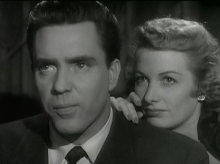Under what circumstances do you leave a church?
- When there is heresy being taught or committed by the leadership (and don't leave a church without indicating to leadership where and how heresy has been taught.)
- Unqualified leadership (and I'd add UNDER-qualified leadership. We left a church over this issue, and one of these days I will jot down notes in terms of why I think that ALL teaching elders need to be seminary-educated or actively pursuing a seminary education.)
Can a man with an unbelieving wife who leaves him become an elder?
- Is this man above reproach?
- Does he "stay with" his wife, even when she's gone? (staying committed to HIS marriage vow, til death does them part, and not remarry?)
The Lord's Supper, as observed by denominations like Methodists
- Methodists allow for a strange teaching along the lines of a "half-way covenant", allowing people thinking of becoming believers to eat the meal. Believers should actually iron out the implications and decide for themselves prior to taking of the elements.
Church Membership
- I Cor. 12 speaks of being "members" of Christ's body.
- In the book of Acts, there are examples of the church knowing it's numbers and people.
- In the Old Testament, there is a clear demarcation of God's people.
- " Re-sacrifice" never appears in Ignatius and the early fathers.
- The 11th century sees the first appearance of transubstantiation.
- Aquinas took from Aristotle the idea that the inner "essence" changes into Christ.
- Per Catholic teaching, the elements still maintain the look and taste of bread, which is part of the "double miracle" of transubstantiation.
Baptism
- The paedobaptist view was challenged by credobaptists in the first few centuries.
- The 1st century saw the baptism of believing children (notes are a little sketchy here - I didn't grab a source.)
- The Didache talks about baptism taking place in flowing water following fasting (hence implied it was intended for an adult.)














No comments:
Post a Comment